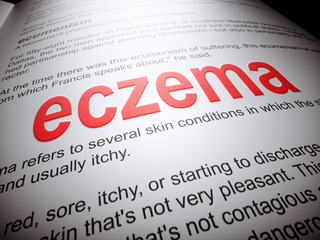Eczema, also known as atopic dermatitis, is one of the most common skin concerns today. And yet, it remains deeply misunderstood. We often hear questions like “Is eczema contagious?” or “Will it go away on its own?”—questions rooted in long-standing myths that can keep people from taking the right steps toward healing.
Eczema isn’t just a childhood issue or a temporary rash—it’s a chronic inflammatory skin condition that affects over 230 million people worldwide, from newborns to grandparents. It can flare up during stressful periods, seasonal shifts, post-infection immune dips, or even after something as simple as switching your laundry detergent.
In fact, flare-ups surged during the pandemic when frequent handwashing, sanitiser use, and elevated stress levels created the perfect storm for sensitive skin. Yet, many still treated it like a passing dryness—or worse, assumed it was something to hide.
At Oleum Cottage, we’ve spent over a decade supporting skin affected by eczema, psoriasis, dermatitis, and other barrier concerns. And we’ve heard every myth in the book. So let’s set the record straight.
Is Eczema Just Dry Skin?
Not quite. While dry, itchy skin is one of the hallmark symptoms of eczema, the condition goes deeper. Eczema is actually a chronic inflammatory disorder—one that stems from a compromised skin barrier and an overactive immune system.
This means that surface-level hydration isn’t enough. Eczema-prone skin needs support at a cellular level. Restoring the skin barrier takes more than just hope—it takes our Restorative Oil. Packed with moisture-locking emollients and barrier-repairing lipids, it’s designed to soothe from within. Plant-based ingredients like olive oil and jojoba oil—rich in essential fatty acids—help calm inflammation while reinforcing the skin’s natural resilience.
Is Eczema Caused by Poor Hygiene?
This is one of the most damaging myths. Eczema has nothing to do with cleanliness. In fact, over-washing with harsh soaps or sanitizers can aggravate it, stripping away the skin’s protective oils and leaving it vulnerable to irritation and inflammation.
During the pandemic, eczema flare-ups skyrocketed because of constant handwashing, alcohol-based sanitizers, and elevated stress levels. The takeaway? Gentle care goes a long way. Use a fragrance-free cleanser or pure handmade soap, avoid long hot showers, and always seal in moisture immediately after bathing.
Try our Skin Softening Body Oil—a soothing post-shower essential that will help calm flare-ups and nourish dry, irritated skin. It absorbs quickly and deeply hydrates without leaving a greasy residue.
Is Eczema Contagious?
No. Eczema is not contagious. Despite how visible flare-ups might look—red, scaly patches on the hands, face, or neck—eczema stems from an internal imbalance, not an external threat.
It is genetic as people with eczema often have mutations in the filaggrin (FLG) gene, which is responsible for producing an important protein that helps to maintain a strong, moisture-retaining skin barrier. This weakened skin barrier can actually lead to poorer defense to microbial infections. And the immune system in people with eczema is hypersensitive, which overreacts to normal environmental triggers.
But unlike infections caused by bacteria, fungi, or viruses, eczema cannot be spread from person to person and you cannot "catch" eczema by touching someone who has it. However, chances of secondary infections are high with a compromised skin barrier.
Educating ourselves and others can help reduce the stigma surrounding myths about eczema and promote empathy over isolation.
Will Eczema Go Away On Its Own?
Eczema doesn’t follow a predictable timeline. While some people may experience mild episodes that resolve on their own, for most, eczema is a recurring condition that needs consistent, long-term support.
Many people think eczema will ‘just go away’ if they leave it alone—but that’s not how it works unfortunately. Without proper care, eczema can worsen over time, leading to increased flare-ups, infections, and even long-term skin damage.
Ignoring symptoms can lead to:
-
Thickened skin due to chronic scratching, also known as lichenification
-
Open wounds that are prone to bacterial infections
-
Severe discomfort that affects sleep and daily life
So if your eczema is persistent, consulting a skin expert for a customized treatment plan is the best approach. Treatment can include moisturizers, anti-inflammatory oils, lifestyle adjustments, and, in some cases, serious medical treatments.
Can Steroids Treat Eczema?
Topical steroids are commonly prescribed during severe flare-ups, and in some cases, they provide temporary relief. But long-term reliance on steroids can thin the skin and create new sensitivities. They also don’t address the underlying barrier dysfunction. That’s why many are now exploring natural alternatives to steroids for eczema that work to repair the skin barrier and reduce inflammation.
Natural remedies for eczema supported by research include:
-
Cold-Pressed Oils: Jojoba, Extra Virgin Coconut and Virgin Olive oils help reduce inflammation and strengthen the skin barrier. Learn more about why oils are good for treating skin ailments.
-
Dietary Changes: Studies suggest that anti-inflammatory diets rich in Omega-3s (found in fatty fish, flaxseeds, and walnuts) can help manage eczema. Adding certain probiotics help balance the immune system and improve eczema symptoms.
-
Stress Reduction: Stress is a major eczema trigger—techniques like yoga, meditation, and deep breathing exercises can significantly help.
Real-life success stories from our users, who have effectively used the above remedies, proves that managing eczema is possible, even though the condition feels overwhelming, and takes time to heal.
Your Path to Better Skin
The journey to managing eczema doesn’t have to be complicated. With the right understanding of what triggers your flare-ups and the best products to support your skin’s health, you can make informed decisions about your skincare routine. It’s about restoring balance and nourishing the skin with ingredients that are safe, effective, and gentle.


